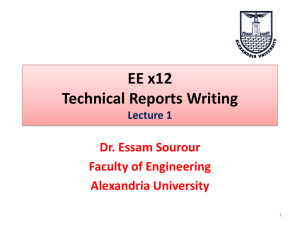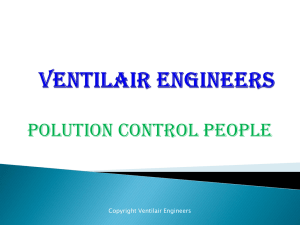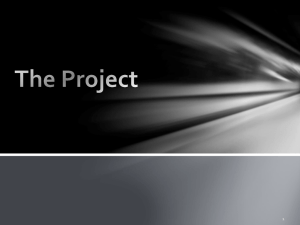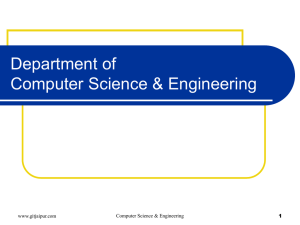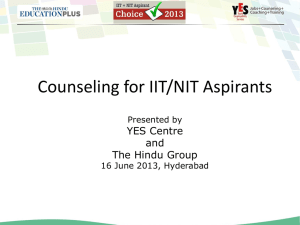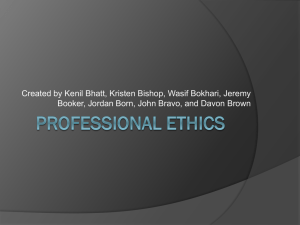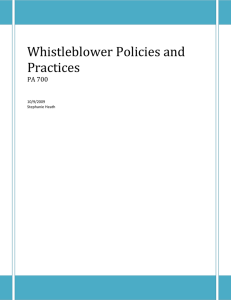Professional Ethics: When Are Engineers Required to “Blow the
advertisement
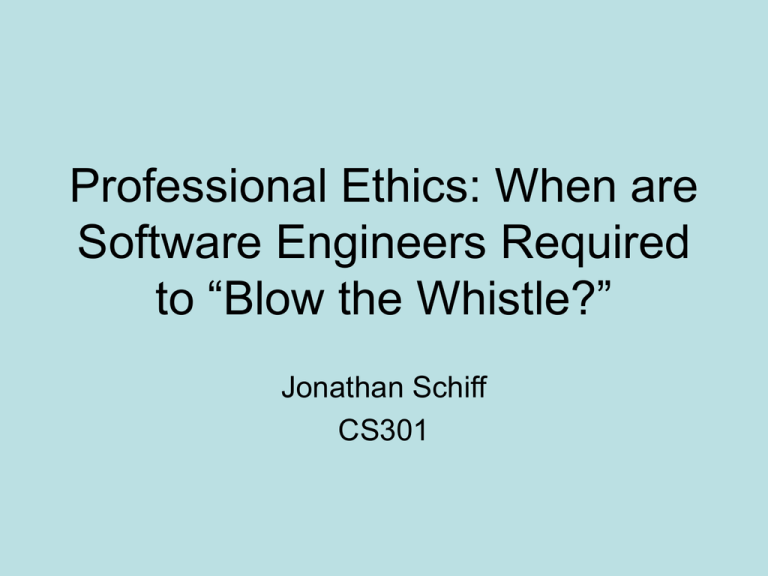
Professional Ethics: When are Software Engineers Required to “Blow the Whistle?” Jonathan Schiff CS301 Three Views of Whistle-Blowing • Condemmed as an action taken by disloyal troublemakers who rat on their companies and who undermine teamwork that is based on the hierarchy of authority within the corporation • Affirmed unequivocally as an obligation that is paramount in certain circumstances where it overrides all other considerations, whatever the sacrifice involved in meeting it • Regarded as a tragedy to be avoided, though it may sometimes be a necessary evil Determining When an Engineer Should Blow the Whistle What kind of guidance do the ethical codes adopted by computer professionals provide members when they are confronted with specific dilemmas that could lead to a whistle-blowing decision? Software Engineering Code of Ethics and Professional Practice • Software engineers shall act consistently with the public interest • should “express concern to the people involved when significant violations of this Code are detected unless this is impossible, counterproductive, or dangerous” • should “report significant violations of this Code to appropriate authorities when it is clear that consultation with people involved in these significant violations is impossible, counterproductive, or dangerous” One Opinion: Being Permitted Versus Being Required to Blow the Whistle Permitted: 1. The harm that will be done by the product to the public is serious and considerable 2. The engineers have made their concerns known to their superiors 3. The engineers have received no satisfaction from their immediate supervisors, and they have exhausted the channels available within the corporation, including going to the board of directors One Opinion: Being Permitted Versus Being Required to Blow the Whistle (continued) Required: 1. The engineers have documented evidence that would convince a reasonable, impartial observer that his/her view of the situation is correct and the company policy wrong 2. There is strong evidence that making the information public will in fact prevent the threatened serious harm Another Opinion: Being Required to Blow the Whistle after Only First Three Conditions are Met • One has an obligation to disclose organizational wrongdoing that one is unable to prevent • The degree of the obligation depends on the extent to which one can forsee the severity and consequences of the wrongdoing • “Harm” is not adequately defined in previous model: could also involve sexual harassment, violations of human rights or privacy, industrial espionage, etc. • Engineers must be willing to make greater sacrifices than others because engineers are in a greater position to do certain kinds of social harm A Response to Second Opinion • Blowing the whistle should only be required in extraordinary cases • Doing so in nonextraordinary cases can be undesirable from an ethical point of view because it demands that these engineers to be “moral heroes” An Alternative Opinion (a sort of compromise of the previous two) • Engineers have an obligation to come to the aid of others • An engineer’s work must be seen in context of its relation to society to get an adequate account of their moral responsibility • If engineers act as individuals, they may not always have the ability to help, therefore, they should act collaboratively with other engineers to meet all of these responsibilities Questions? Comments? Complaints?


